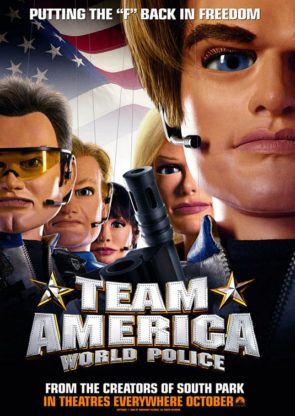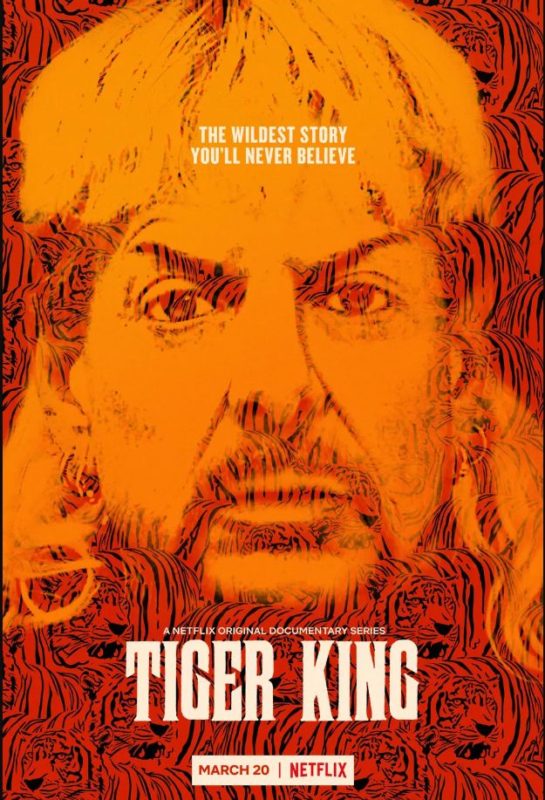
Zardip is a robot alien whose body keeps breaking down. He has come to our planet in human form to learn about dieting, nutrition, exercise, and other things that would be useless for a robot.
The show’s concept shines through like a radioactive skeleton: “Mork and Mindy, but educational”. A typical episode features Zardip interacting with his new human friends, misunderstanding some heath concept in an amusing way, and being corrected. All the usual cliches make an appearance. Is there a rap song about the importance of health? Does air contain air?
I love the show’s title more than I love my family. It simultaneously manages to be clunky, overlong, grammatically challenged, redundant (is there such a thing as “unhealthy wellness”?), and if that’s not enough, it contains the word “Zardip”. Some TV guides didn’t even print the full title, shortening it to Zardip’s Search.
Zardip’s Search For Blah Blah is live action and mostly shot on the same 2-3 sets. To break things up there’s cutaway scenes featuring 2D animation, claymation, and even a few seconds of CGI (which cost a fortune in 1988), giving it the air of a variety show. It provides basic medical information mixed with dubious factoids – it repeats the “43 muscles to frown and only 17 to smile” urban legend, for example. The end credits thank a “Dr Robin Williams”, which feels like a joke.
In the late 80s and early 90s, Canadian broadcasting achieved a striking international presence, particularly in the British Commonwealth. As a boy in Australia I saw nearly everything by Nelvana and Atkinson’s Film Art ever made. The historical reasons elude me. Perhaps the syndication rights were cheaper? In any case, Zardip’s Search For Schnorp doesn’t belong in a class with Babar and Caillou. Briefly syndicated, achieving no lasting fame or notoriety; it’s one of hundreds of shows that once existed and then suddenly didn’t.
Wikipedia questionably asserts that “the show has a cult following among Canadians who attended grade school in the late 1980s and early 1990s”. This cult must have overdosed on zero sugar Kool-Aid and died from excess Healthy Wellness(tm) because I can’t find them online. The IMDB entry for Zardip’s Search For Arglebargle has just seventeen ratings (averaging 7.8/10, higher than the last Quentin Tarantino film) and only two reviews. A VHS transfer exists on Youtube with about two thousand views per episode. It likely won’t come to Netflix tomorrow, or the day after.
Zardip is played by a striking child actor called Keram Malicki-Sanchez. He turns in a powerful performance, reminding me of David Bowie in The Man Who Fell to Earth. What happened to him? I Googled his name, praying that Zardip’s Search For A Printable Title wouldn’t be among the top results. It was. Oh.

At age nine, anything seemed cool if it was rumored to contain swear words. I lived in awe of the Rapper Who Swears (Eminem), the Videogame That Swears (Grand Theft Auto 3), the Books That Swear (Tom Clancy’s), and particularly the Cartoon That Swears (South Park).
When I finally saw the South Park in adulthood, I was surprised. The Cartoon That Swears turned out to be an intelligent and funny show with a lot to say and a finger close to the pulse. But I never really liked the show’s cultural commentary. It always had a strained quality, with Trey Parker and Matt Stone struggling so hard to be both funny and profound that you could see sweat dripping from the storyboards. I preferred the episodes that took a lighter touch and had the kids just goofing around.
The duo’s 2004 film Team America: World Police has similar strengths and weaknesses. Lots of jokes land, but many others don’t, and there’s a clear reason why.
It’s about Team America, a covert spec-ops force who (in the opening scenes) blows up the Eiffel Tower, the Louvre, and the Arc de Triomphe while attempting to stop a terrorist attack in Paris. One of their members dies in the fiasco, and his replacement is Gary, a Broadway actor. With Kim Jong Il and terrorists from Durkadurkastan threatening to commit “9/11 times 2,356”, they need Gary’s acting skills to infiltrate a terrorist cell.
Straight away, there’s a horrible miscalculation: puppets. Nobody likes puppets, or wants to see puppets. They’re creepy. The nightmare fuel is at relatively low levels during dialog scenes, but whenever a puppet moves or does something the odd stiffness is all you can focus on. It would have been better as CG, or South Park style cutouts, or live action. Anything except puppets.
But TA:WP‘s big problem is that the geopolitical satire elements just don’t work. Who are we laughing at? And at whose expense? There’s a saying that comedy should punch up, not down (in other words, make jokes about deserving targets). I don’t agree: often it’s unclear who the “deserving” target is in a given joke and reducing comedy to a form of cultural warfare is gauche, to say the least. But Team America doesn’t punch up or down. It punches the air. And itself.
An example: the first scene involves Team America destroying half of Paris. “Okay,” I thought, “it’s mocking gung-ho American aggression.” But soon things get muddled: the terrorists actually pose a credible threat to global stability, and Team America’s methods are both necessary and successful in fighting them. The film basically chops away its own knees: creating straw men and then valorizing them.
And (as Roger Ebert mentioned at the time) it’s striking that the White House is spared as a target. Team America operates on their own, without supervision (it’s mentioned that it’s sponsored by corporations, a shot at Halliburton that goes nowhere). The implication seems to be that if a military operation ends in disaster or tragedy, it’s the fault of a few loose cannons on the ground. Nobody higher up should be blamed or held to account. Is that what they’re saying? I don’t know. What are they saying?
To be clear, I don’t care that the film is apolitical, nor do I want it to be full of Bush jokes (nothing was more hack in 2004) But when you make a movie about a complex geopolitical situation, you should have more to say than “everyone is a retarded fag, plus the military is cool”. It’s a rough bit to laugh at.
But I insulteth the film too much. A lot of it is really funny. There’s one gag as hilarious as anything I’ve seen recently, and it has nothing to do with politics. As Gary gets briefed at the top-secret Team America base, he’s told that if he’s taken prisoner he’ll want to take his own life using a special tool. You’re expecting a high-tech gadget…but Spottswood hands him a hammer. A fucking claw hammer.
There’s plenty of jabs taken at the messiah complex of certain actors. The funniest Simpsons episodes are the ones that riff off the cartooning industry, and Parker & Stone are likewise in their element when writing about showbiz. They’ve never been afraid to shit where they eat. They famously attended the 2000 Oscars dressed in drag and high on LSD, which might explain why they don’t generally get invited to nice occasions like that.
Even the Thunderbirds-esque puppets sometimes work as a source of “anti-comedy” (think Tim and Eric). There’s a moment where Gary is riding a motorbike, collides with the camera, and awkwardly flips over. It’s so jarring and dumb that it gets a laugh. I’m pretty sure that this was an actual accident left in the film.
This is the sort of film where you find enjoyment in the decoration – the occasional bit of inspired craft or filmmaking, the funny one-liners, the songs – rather than the substance. TA:WP is like scaffolding that stays up while the building at the center collapses. The satirical core of the film – which should have been its strong element – ends up just being a gaping black hole.

You’ve heard your friends talking about this Netflix documentary, and I suggest you see it right now, before it saturates the water cooler ecoystem and it loses its shock value. It’s sad that nobody can watch The Sixth Sense in 2020 without knowing that Bruce Willis is a ghost. I’d hurry up and watch Tiger King before it gets spoiled for you.
It’s one of the most insane things I’ve ever seen. The people in it hardly seem real. I was constantly veering between shock and laughter. “…he’d come and rub them balls in my face” gets spoken at an eulogy. A man shoots himself in the head barely off camera, and it’s not even the fifth craziest thing to happen in that episode. There’s a straightfaced discussion about whether a human body can be put through an industrial mincer.
Basically, it’s about a war between owners of big cats, which culminates in a tangle of attempted (and perhaps successful?) murders. Joe Exotic owns a zoo. Carole Baskin owns an “animal rescue” that is indistinguishable from a zoo. Both of these people have a lot of shady history: we get the sense that they’re both dangerous, as well as incapable of walking away from any situation where they see themselves as the loser.
Owning a big cat is legal in most US states: but not in a same way that owning a head of lettuce is legal. The animals are as dangerous as their owners (one of Joe Exotic’s weirdly devoted employees loses an arm in a tiger cage) and there are laws against breeding them. Joe is clearly on the wrong side of these laws, but he needs to breed them, because it’s the only way his zoo can remain profitable.
The documentary educates you on the brutal economics of the tiger business: an adult tiger costs several thousand dollars per month to feed, and you can’t do anything with them except exhibit them. The real money is in tiger cubs, which are small enough to be cuddled and petted. Joe Exotic claims he can make a hundred thousand dollars from a newborn cub.
However, profitable cubs age into unprofitable tigers. Joe’s zoo in Wynnewood Oklahoma (aka Backup Florida) had a total 176 tigers, saddling him with staggering food bills and forcing him to breed still more cubs. The Chinese saying “he who rides on the back of a tiger can never get off” describes Joe’s basic dilemma: he’s running a tiger-based Ponzi scheme that will basically never be profitable (except in the short term). Unless he euthanizes grown tigers, which he’s pretty clearly doing.
He might have escaped notice for this, but he also starts targeting human prey. Supposed animal rights activist Carole Baskin may have fired the first shot in their war (she objects on moral grounds to the breeding of tiger cubs), but he escalates their feud to ridiculous, Wile E Coyote levels, piling up incriminating evidence against himself. The series straight away spoils the ending – Joe Exotic makes a call from his Fort Worth prison cell – but there’s no way it could have ended any other way. It’s a testament to the man’s unnatural charisma that he got away with so much for so long.
It’s hard to describe how fun and exhilerating Tiger King is. Even thinking about a few of my favorite moments overwhelms me with options. It’s like digging a hole to find gold, but the dirt you’re casting aside is also gold, and your pickaxe is made of gold too.
It’ll give you a lot to think about, too. Joe Exotic would probably still be a free man if he hadn’t effectively lynched himself via social media. But his self-exhibiting impulses were the only reason he was ever successful: albeit in a quasi-legal fashion. And in this sense, is he any different from the tigers he kept?
About ten years ago, there was a “furry” called Stalking Cat who took his feline obsession to ghastly extremes, undergoing over fourteen body modifications to become a tigress before committing suicide. Joe Exotic succeeded where Stalking Cat failed. Spiritually, he became a tiger.
The main role of tigers, in our culture, is to stand out and attract attention. If they were boring, they’d already be extinct. They survive because people love them. Joe Exotic was the ultimate charismatic megafauna. We adulated him, we feared him, and eventually, we put him in a cage.



